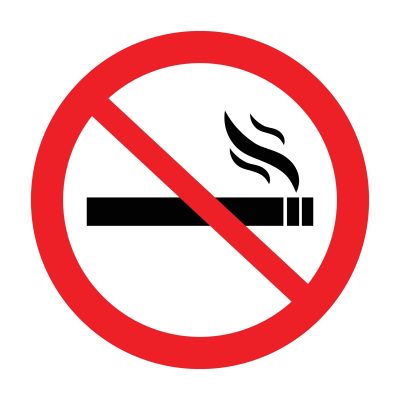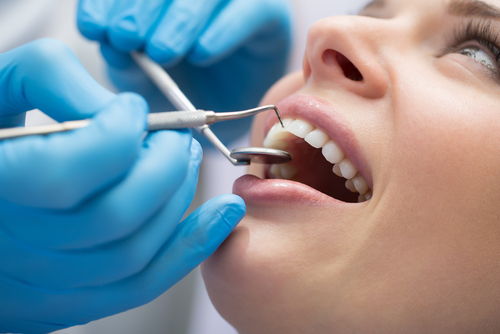The Impact of Smoking on Dental Implants: What You Should Know Before Your Procedure

Dr. Petrosky is proud to serve New Jersey patients in Tuckerton, Little Egg Harbor, Jersey City, Mystic Island, Waretown and the nearby areas. Contact our Tuckerton dental office today by calling (609) 296-1007.
How Smoking Can Affect Implant Success
Dental implants are a popular and reliable solution for missing teeth. However, like any surgical procedure, the success of implants depends largely on how well your body heals afterward. Smoking introduces several challenges to this healing process, making it harder for your implants to bond with your jawbone and increasing the chances of dental implant failure. Here’s how:
Decreased Blood Flow to the Gums
Cigarette smoke reduces the amount of oxygen in your bloodstream and constricts blood vessels. The chemicals in cigarette smoke contribute to decreased blood flow to your gums, which can slow down the healing process after implant surgery. Without enough blood reaching the area, your body has a harder time fighting infections and repairing tissues.
Increased Risk of Infection
Nicotine and other chemicals in cigarettes can impair your immune system, making it more difficult to fight infections. An infection can cause your implant to fail or lead to complications in the healing process. In some cases, this could result in the implant needing to be removed.
Weakened Bone Healing
Dental implants rely on a process called osseointegration, where the implant fuses with your jawbone. Smoking can slow down this process, making it harder for the implant to become securely anchored. This can increase the likelihood of implant failure or discomfort, ultimately affecting implant survival in the long term.
Increased Risk of Gum Disease
Smoking is a leading cause of gum disease, which can weaken the foundation that supports your dental implants. Even if your implant surgery is successful, poor oral health from smoking can jeopardize the long-term stability of your implant.
How Long Should You Avoid Smoking After Dental Implant Surgery?
While quitting smoking entirely is ideal, even cutting back can help improve your chances of a successful implant procedure. Before receiving dental implants, it’s crucial to quit smoking to avoid complications such as gum disease that can affect the placement and retention of the implants. If you’re unable to quit, it’s crucial to avoid smoking for at least a few days before and after your surgery. For optimal results, it’s recommended to refrain from smoking for at least two to three weeks after the procedure, but ideally, for several months to allow proper healing and osseointegration.
Tips for Smokers Considering Dental Implants in Tuckerton, NJ

- Quit smoking for at least a few weeks before the surgery: If possible, try to quit smoking well in advance of your implant procedure. The longer you refrain from smoking, the better your chances of healing properly. Quitting smoking is crucial to improve the success rates of dental implant placement.
- Keep up with good oral hygiene: Smoking makes it easier for plaque and tartar to build up, which can cause infection. Brush and floss regularly and follow your dentist’s advice for maintaining oral health.
- Talk to your dentist: If you’re a smoker, it’s important to have an open conversation with your dentist about your habits and how they may affect your dental implants. Dr. Petrosky can offer personalized guidance on the best approach for your dental implant procedure.
The Importance of Regular Dental Checkups
Even after your dental implants have healed, it’s essential to have regular check-ups with your dentist. Dental research has shown that smoking negatively impacts oral health, including salivary gland function and dental implant health. Dr. Petrosky recommends routine visits to ensure that your implants are in good condition and that your oral health is maintained. Smoking can lead to long-term issues with your implants, so staying on top of your dental care is essential for preserving your investment in your smile. Schedule your next dental checkup by calling (609) 296-1007.
Frequently Asked Questions
It’s highly encouraged to avoid smoking before and after your implant procedure. The healing process can be hindered by smoking, and it can increase your risk of implant infection.
You should quit cigarette smoking at least two weeks before your dental implant procedure. As far as after, consult with your dentist or oral surgeon for specific recommendations.
No, it’s not recommended. Nicotine replacement therapy can restrict blood flow to the gums and jawbone, negatively impacting the healing process. Discuss smoking or nicotine replacement therapy with your dentist before proceeding with implant treatment.
Research indicates that individuals who smoke have a higher risk of implant failure, with rates ranging from 6.5% to 20% compared to non-smokers. Findings from a systematic review and meta-analysis highlight the impact of smoking on dental implants, comparing the rates of implant failure between smokers and non-smokers. The reason for this increased risk is that tobacco and nicotine can lead to constriction or narrowing of blood vessels in the gum tissues of the mouth, which can impede the healing process necessary for successful dental implant integration.
Quit Smoking for Better Dental Implant Success at Tuckerton Dental
Smoking and dental implants don’t mix well. The risks of infection, slower healing, and potential implant failure can all be avoided or minimized if you take the steps to quit smoking before and after your surgery. While it can be tough to break the habit, it’s one of the most important things you can do for your health and the longevity of your dental implants.
If you’re located in Tuckerton, Jersey City, Little Egg Harbor or the surrounding areas and are considering dental implants, Dr. Petrosky is here to help you navigate your options for the best possible outcome. Contact your dentist in Tuckerton, NJ today by calling (609) 296-1007.